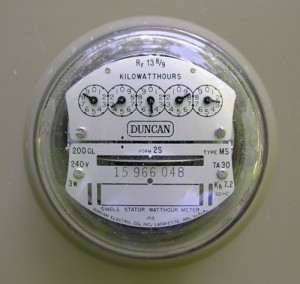Lease Basics: Who Pays the Utilities?
 The utilities section in a property lease is one of the most important. It stipulates who is responsible for the utility bills associated with the rental property. Failing to specify which utilities the tenant will be responsible for can cause headaches and financial loss to the landlord.
The utilities section in a property lease is one of the most important. It stipulates who is responsible for the utility bills associated with the rental property. Failing to specify which utilities the tenant will be responsible for can cause headaches and financial loss to the landlord.
Determining who’s responsible for the unit’s utilities—and having a signed agreement—is important because it protects both the landlord and the tenant. Each utility company has different ways of handling rental properties. Once you know how things work in your area, decide which arrangement works best for your situation; there are many options, including:
- In single-family rental houses, tenant pays all utilities directly to the provider
- Landlord pays for utilities that can result in liens against property if unpaid
- Tenant pays for everything except sewer and water
- Landlord pays utilities and has tenants reimburse him
- Landlord pays only for utilities the building owner is responsible for
- Tenants pay for anything that is metered to their unit; utilities with shared meters (usually water and sewer) are paid by landlord and built into the rent
- Landlord pays for garbage and recycling pickup only
Once you determine which arrangement works best, draft your this section of the rental agreement stating that the tenant is responsible for all utilities except for those (specify them) the owner will be paying. Also include language that the tenant agrees to make the payments through the term of the lease and nonpayment will be considered a breach of the agreement. State that any past due utility bills may be paid by the owner and will be charged to the resident, along with applicable fees.
As part of your due diligence before you sign the lease, check with the utility companies to be sure the tenant qualifies for an account in his or her name. Outstanding bills may prevent this—if you sign a lease with a tenant who cannot get the utilities in their name, you’ve just wasted a lot of time working with a tenant who won’t be moving into your rental property.
Finally, most landlords we know have utilities revert to their name between tenants.

Add A Comment
You must be logged in to post a comment.